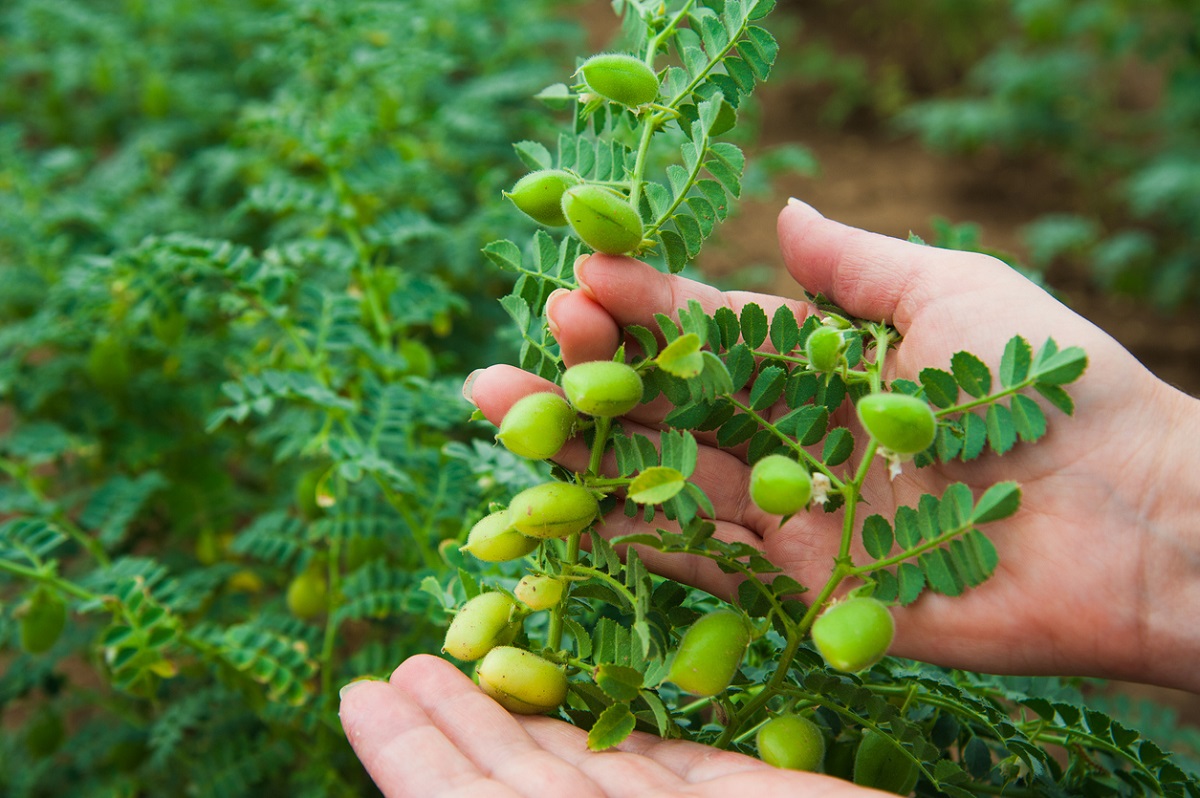
Transgenic Chickpeas Exhibit Drought Tolerance, Increased Seed Yield Under Extremely Dry Condition
January 13, 2021| |
Researchers from India developed a line of transgenic chickpea found to be more tolerable to drought with increased seed yield trait. In the long run, the transgenic chickpea can contribute to the decrease of annual chickpea yield and production loss that is commonly attributed to drought.
The researchers developed transgenic chickpea lines that harbor the transcription factor Dehydration Responsive Element-Binding (DREB) protein 1A from Arabidopsis thaliana (AtDREB1a gene), with the objective of enhancing drought tolerance in the crop. DREBs are known to be important plant factors that regulate stress-induced gene expression and play a role in stress tolerance against abiotic factors.
The GM chickpeas were found to exhibit higher relative water content, longer chlorophyll retention capacity, and higher osmotic adjustment under extreme drought condition levels as compared to the non-transgenic controls. The chickpeas were also found to have yielded more seeds with a progressive increase in water stress.
The researchers concluded that the transgenic chickpea event would be valuable for breeding in varietal development programs for enhanced drought tolerance under parched conditions.
Read the open-access article in BMC Plant Biology.
| |
You might also like:
- Indian Experts Develop Nutritious Drought Tolerant Chickpea
- Technology to Accelerate Search for Drought Tolerant Chickpeas
- India Develops Drought Tolerant and Disease Resistant Chickpeas
Biotech Updates is a weekly newsletter of ISAAA, a not-for-profit organization. It is distributed for free to over 22,000 subscribers worldwide to inform them about the key developments in biosciences, especially in biotechnology. Your support will help us in our mission to feed the world with knowledge. You can help by donating as little as $10.
-
See more articles:
-
News from Around the World
- Study Shows Groups of Bacteria Can Work Together to Protect and Improve Crop Growth
- Viruses Found in Saltwater Microalgae Could Be the Key to Bio-saline Agriculture
- Chinese Scientists Discover Rice Gene for Adaptation to Low Soil Nitrogen
- Europe's Position on COVID-19 Vaccines Inconsistent with its GMO Stance
- International Research Team Identifies Bacterium that Protects Rice Plants from Diseases
- Defra Seeks Support for Gene Editing; Launches Consultation
-
Research Highlights
- Transgenic Chickpeas Exhibit Drought Tolerance, Increased Seed Yield Under Extremely Dry Condition
-
Plant
- CRISPR Offers Glowing Solution to Male Chicks Culling Problem
- Superbug Slaying Antibiotics Increase Production by Tenfold With CRISPR-Cas9
- Expert Proposes Techniques to Address Regulatory Concerns in Gene Editing
- Breakthroughs in Science Using TALENs
-
Health
- UChicago Creates First Computational Model of Entire COVID-19 Virus
-
Read the latest: - Biotech Updates (February 11, 2026)
- Gene Editing Supplement (January 28, 2026)
- Gene Drive Supplement (February 22, 2023)
-
Subscribe to BU: - Share
- Tweet

